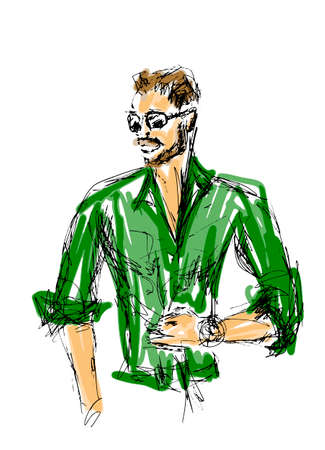Introduction: Unravelling Fast Fashion in Britain
The United Kingdom has long been a global hub for fashion innovation, but in recent decades, the allure of fast fashion has dominated high streets and online shopping carts. Characterised by rapidly changing trends, mass production, and low prices, fast fashion brands have made style more accessible than ever. However, this convenience comes at a significant cost. In the UK alone, it is estimated that over 300,000 tonnes of clothing end up in landfill every year, highlighting the environmental burden of disposable fashion. Furthermore, investigative reports have revealed troubling labour practices both domestically and overseas, linking fast fashion supply chains to low wages and unsafe working conditions. As awareness grows about these environmental and social consequences, British consumers are beginning to question the true price of cheap clothing. This shift in mindset is setting the stage for a nationwide movement towards ethical practices and more sustainable wardrobe choices.
2. Cultural Shifts: British Values and Conscious Consumerism
In recent years, the United Kingdom has witnessed a significant cultural shift towards ethical clothing, driven by deeply rooted British values such as heritage, sustainability, and community. These values are now shaping the way consumers approach fashion, moving away from fast fashion’s disposable culture and embracing what is now called the “slow wardrobe.” This transition is not only about individual preference but also reflects collective British identity and social responsibility.
Heritage and Authenticity
British heritage brands have long been associated with quality craftsmanship and timeless design. The growing appreciation for authenticity over trend-driven items is influencing purchasing decisions. Consumers are increasingly seeking garments that reflect traditional skills, regional textiles, and local stories—factors that support both domestic industry and reduce the carbon footprint associated with global supply chains.
The Role of Sustainability
Sustainability has become a central consideration in British fashion choices. The impact of environmental campaigns and documentaries has heightened awareness of the detrimental effects of fast fashion on the planet. As a result, there is a marked increase in demand for clothing made from organic materials, recycled fibres, or produced through transparent processes. This shift aligns with broader British ambitions to meet climate targets and champion responsible consumption.
Community-Driven Initiatives
Community engagement also plays a crucial role in the adoption of slow wardrobes. Grassroots organisations, charity shops, repair cafés, and clothing swaps are thriving across cities like London, Manchester, and Glasgow. These initiatives foster a sense of belonging while encouraging mindful consumption. By participating in local circular economies, Britons are rediscovering the value of longevity and repair over replacement.
Key Influences on Purchasing Decisions
| Influence | Description | Impact on Slow Wardrobe Mindset |
|---|---|---|
| Heritage Brands | Emphasis on craftsmanship and tradition | Encourages investment in quality over quantity |
| Sustainability Awareness | Concerns about environmental impact | Promotes choices aligned with eco-friendly values |
| Community Initiatives | Local engagement and collaborative consumption | Fosters sharing, mending, and reuse practices |
| Cultural Identity | Pride in supporting British-made products | Strengthens national identity through fashion choices |
This growing alignment between cultural values and conscious consumerism demonstrates how the British movement towards ethical clothing is more than a trend—it is an evolving mindset that prioritises integrity, sustainability, and community at its core.

3. The Growth of British Ethical Clothing Brands
Over the past decade, the UK has witnessed a significant surge in homegrown ethical clothing brands that challenge the fast fashion status quo. These brands are not only redefining British style but also placing sustainability, transparency, and fair labour practices at the heart of their operations.
Leading Names in UK Ethical Fashion
Brands such as People Tree, Finisterre, and Thought have become household names for those seeking conscious alternatives to mainstream retailers. People Tree pioneered Fair Trade fashion in Britain, ensuring every garment supports artisan producers and uses organic materials. Finisterre, rooted in Cornwall’s surfing culture, champions recycled fabrics and product longevity, while Thought is lauded for its use of natural fibres like bamboo and hemp.
Innovative Approaches and Local Impact
British ethical labels stand out for their innovative approaches to circularity and community involvement. Brands like Lucy & Yak have popularised dungarees made from GOTS-certified organic cotton, all while maintaining a transparent supply chain and engaging directly with their customer base online. Baukjen and Sweaty Betty have committed to carbon-neutral goals and rental or resale schemes, reflecting the growing demand for responsible consumption among British shoppers.
A Growing Consumer Base
The popularity of these ethical brands is rising steadily in the UK. According to a 2023 report by the Ethical Consumer Research Association, sales of ethical clothing in Britain surpassed £1 billion for the first time—a testament to shifting values among consumers who increasingly prioritise planet-friendly choices over fleeting trends. Social media activism, increased awareness of supply chain issues, and government initiatives have all played a role in propelling this movement forward.
This groundswell demonstrates that ethical fashion is no longer niche; it is becoming a defining feature of modern British wardrobes. As consumer demand grows, these brands continue to set higher standards for quality, ethics, and style within the UK’s dynamic fashion landscape.
4. Consumer Behaviour: Trends and Data in the UK
Recent years have seen a significant shift in British consumer attitudes towards fashion, with sustainability now a driving force behind purchasing decisions. According to a 2023 survey by the British Fashion Council, over 62% of UK shoppers reported considering ethical or environmental factors before buying new clothing. This marks a notable departure from the traditional fast fashion mindset, which prioritised affordability and rapid trend cycles.
Key Statistics on British Shoppers and Sustainable Fashion
| Indicator | 2019 | 2021 | 2023 |
|---|---|---|---|
| Percentage willing to pay more for sustainable clothing | 29% | 42% | 57% |
| Average annual spend on ethical fashion per person (£) | 120 | 163 | 198 |
| Shoppers avoiding fast fashion retailers (%) | 21% | 33% | 46% |
| Main reason for switching to slow fashion (environmental concern) | 39% | 48% | 54% |
Evolving Preferences Among Different Age Groups
Younger consumers are leading this movement, with Gen Z and Millennials displaying the highest rates of engagement with sustainable brands. Recent research indicates that 72% of Britons aged 18-34 prioritise transparency in supply chains, compared to just 41% of those over 55. Additionally, online searches for terms like “second-hand clothing” and “upcycled fashion” have doubled since 2020, reflecting growing mainstream interest.
The Rise of Resale Platforms and Local Brands
The boom in online resale platforms such as Depop and Vinted further illustrates the changing landscape. In 2023, UK sales of pre-owned garments increased by 31%, outpacing growth in the conventional retail sector. Local British brands emphasising ethical production, traceability, and circular design have also witnessed heightened demand, particularly among urban shoppers in London, Manchester, and Bristol.
This data-driven insight underscores a broader cultural change: British consumers are becoming more intentional in their wardrobe choices, valuing longevity, quality, and ethics over fleeting trends. As awareness continues to grow, the slow wardrobe movement is poised to become a defining feature of the UK’s fashion identity.
5. Challenges and Barriers to Adoption
The shift from fast fashion to a slow wardrobe in the UK is promising, but it is not without its hurdles. Both consumers and brands face significant challenges that hinder widespread adoption of ethical clothing. One of the most prominent barriers is price. Ethical garments often come with higher price tags due to fair wages, sustainable materials, and responsible manufacturing processes. For many British consumers—especially younger generations or families on tight budgets—the upfront cost can feel prohibitive compared to high street bargains. This economic barrier creates a divide between intent and action, with many supporting ethical ideals in principle but struggling to participate in practice.
Accessibility: Limited Choices and Geographic Disparities
Another critical challenge is accessibility. While major UK cities like London, Manchester, and Edinburgh may boast independent boutiques and pop-up stores specialising in sustainable fashion, rural areas and smaller towns often lack such options. Online shopping bridges some gaps, but sizing inconsistencies and return logistics can deter buyers. Furthermore, mainstream retailers have been slow to diversify their ethical ranges, limiting choices for those seeking both style and sustainability on the high street.
Awareness: Bridging the Knowledge Gap
Despite growing media coverage, awareness remains an ongoing issue. Many British shoppers are still unclear about what constitutes truly ethical clothing or how to verify sustainability claims amidst ‘greenwashing’. Education campaigns led by NGOs, influencers, and even brands themselves are crucial but have yet to reach everyone equally. Until awareness becomes mainstream, misinformation and confusion will continue to slow progress towards a genuinely ethical wardrobe culture.
Systemic Obstacles for Brands
Brands themselves encounter systemic barriers. Sourcing transparent supply chains can be complex and costly. Smaller British labels may struggle with minimum order quantities for sustainable fabrics or lack the clout to influence overseas suppliers’ practices. Larger brands face reputational risks if exposed for insincere efforts or supply chain lapses, making them hesitant to pivot fully without robust infrastructure and support.
Together, these challenges highlight that while enthusiasm for ethical clothing is rising in Britain, overcoming issues of affordability, access, and understanding will require coordinated effort from policymakers, industry leaders, educators, and consumers alike.
6. Looking Ahead: The Future of Ethical Fashion in Britain
The trajectory of ethical fashion in Britain suggests a promising shift towards sustainability, transparency, and accountability. As consumer awareness grows, there is mounting pressure on brands to adopt eco-friendly practices and embrace circular economy principles. Data from the British Fashion Council indicates that over 60% of UK consumers consider sustainability when making clothing purchases, a trend likely to intensify as environmental concerns become more mainstream.
Collaborative efforts between government bodies, industry leaders, and grassroots organisations are already yielding tangible results. Initiatives such as the Sustainable Clothing Action Plan (SCAP) have united retailers and manufacturers to reduce waste and lower carbon footprints across the supply chain. Additionally, educational campaigns and community-driven swap shops are fostering a culture of conscious consumption among British shoppers.
The Role of Innovation
Technological advancements are poised to further accelerate the ethical fashion movement. From biodegradable textiles to digital traceability tools, innovation is enabling brands to offer transparency and empower consumers to make informed choices. British designers are increasingly experimenting with local materials and low-impact production methods, reinforcing the nations reputation for creativity and responsible design.
Challenges on the Horizon
Despite significant progress, challenges remain. Price sensitivity continues to influence purchasing decisions, while “greenwashing” threatens to undermine genuine efforts. For ethical fashion to achieve mainstream appeal, affordability and accessibility must be addressed through scalable solutions and policy support.
A Shared Vision for Lasting Change
Looking forward, the future of ethical fashion in Britain depends on sustained collaboration and commitment across all sectors. By combining innovative technologies, transparent supply chains, and robust consumer education, the UK has the potential to set global standards for responsible fashion. Ultimately, it is this collective action—rooted in both data-driven insights and cultural values—that will drive lasting change from fast fashion towards a truly slow wardrobe ethos.


